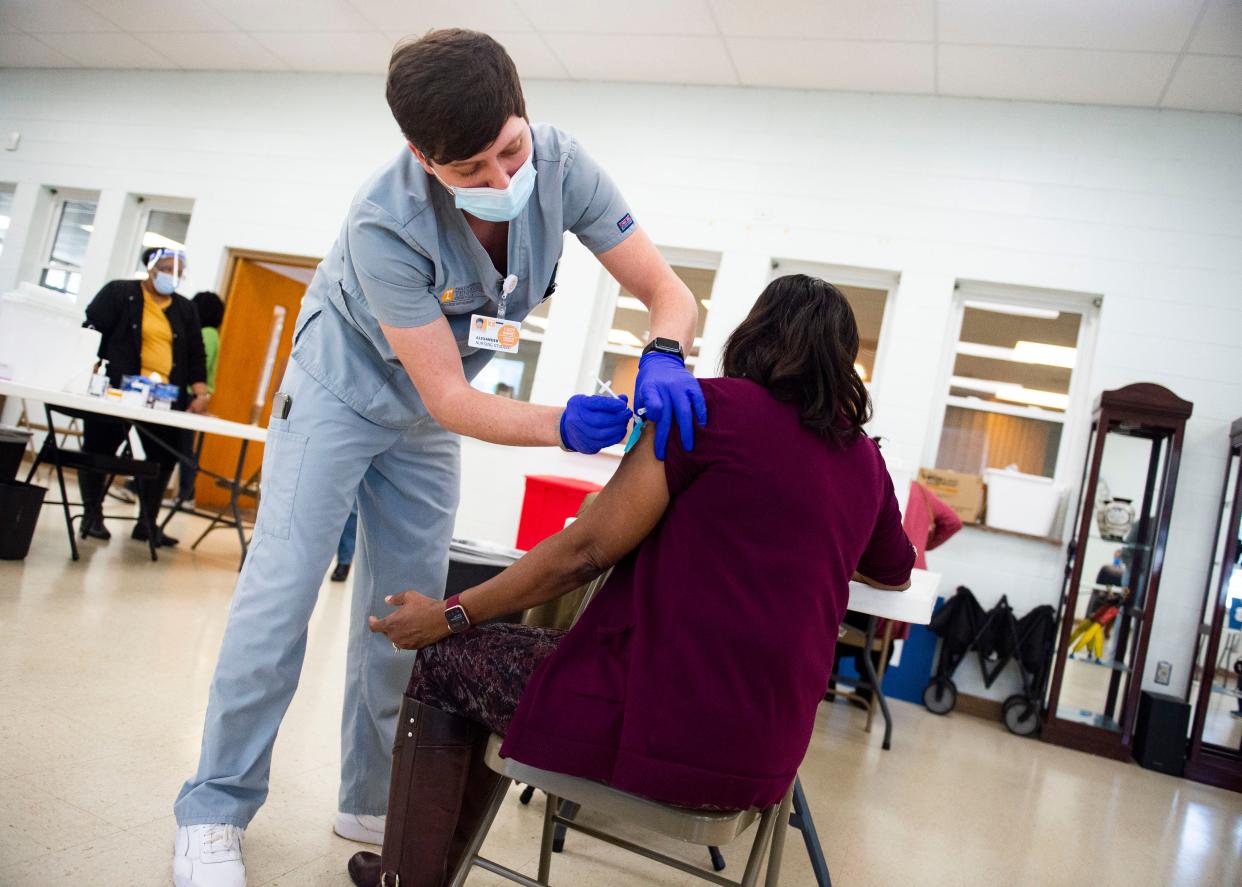COVID is spiking in East Tennessee. Despite a new variant, one doctor is 'more optimistic'

COVID-19 is not going away. And even though a new variant named Eris – a subvariant of Omicron – is becoming prevalent right now, the uptick in positivity rates and hospitalizations is expected to remain manageable, experts say.
“It's not all doom and gloom,” Dr. Robert Wilson of Covenant Health told Knox News. “I'm still cautious, but I'm more optimistic than I was a year ago.”
Wilson has seen more patients with COVID at his Harriman practice over the past three weeks. Many were returning from vacations and other types of travel, and now that schools are back in session, the case counts continue to rise.
“Last week, we started seeing people that had not traveled outside the community. So more of a community spread, and we've seen a few increased cases in that,” he said this week.
Knox County Health Department reported 175 new COVID-19 cases and an average of 25 hospitalizations regionally in the most recent weekly data released Aug. 10. These numbers are up from 161 new cases and an average of 14 hospitalizations a week prior.
COVID-related hospital admissions, emergency department visits, test positivity and wastewater positivity levels are increasing nationally, according to the Centers for Disease Control and Prevention. A weekly update on Aug. 5 showed a 14.3% increase in hospitalizations and 1.1% increase in deaths nationally.
Why you still need to remain vigilant against COVID-19
COVID-19 data does not offer a clear picture of infection rates, unfortunately, because health officials dismantled surveillance systems after the illness was no longer considered a public health emergency, USA TODAY reports.
Even CDC data is a few weeks out of date. More at-home testing means a likely vast underreporting of positive COVID-19 tests.
Wilson said numbers are “at low levels” in East Tennessee, especially compared to 2022, but he advises patients to continue to take precautions.
“It's really important (for) people to continue to be vigilant. I would recommend that people continue to get vaccinations if they've not done so,” Wilson said. “People still need to be really good about hand washing and getting tested early if you start having symptoms, if you're exposed,” he continued.
Positive results from at-home antigen tests are very accurate and reliable, according to the CDC.
To be confident you don’t have COVID-19, the Food and Drug Administration recommends two consecutive negative antigen tests for those with symptoms and three consecutive negative antigen tests for those without symptoms. Tests should be performed 48 hours apart.
Get your COVID vaccine right on time
"The most important thing I like to stress to my patients, is to please get vaccinated," Wilson stressed. "It’s the best thing we can do to protect ourselves, our families, and the people at risk around us. It's not just helping yourself, you're helping the people around you as well."
An updated vaccine targeting the Omicron variants is expected to be available this fall.
The CDC recommends staying up to date with COVID-19 vaccinations. For everyone age 6 and older, this means getting one updated Pfizer or Modena vaccine, even if you received the original series and boosters.
People 65 and older may get a second dose four months after the first updated vaccine, and those who are severely immunocompromised may receive a second dose after two months of the first updated vaccine.
Children six months to 5 years old might need one updated dose or multiple doses depending on the number of previous does they’ve received and their age.
The vaccines are still effective in preventing severe illness, hospitalization and death, but studies have shown a decrease in protection over time against mild and moderate cases, according to the CDC.
Devarrick Turner is a trending news reporter. Email devarrick.turner@knoxnews.com. Twitter @dturner1208.
Support strong local journalism by subscribing at knoxnews.com/subscribe.
This article originally appeared on Knoxville News Sentinel: COVID-19 cases begin to rise nationally and in East Tennessee

